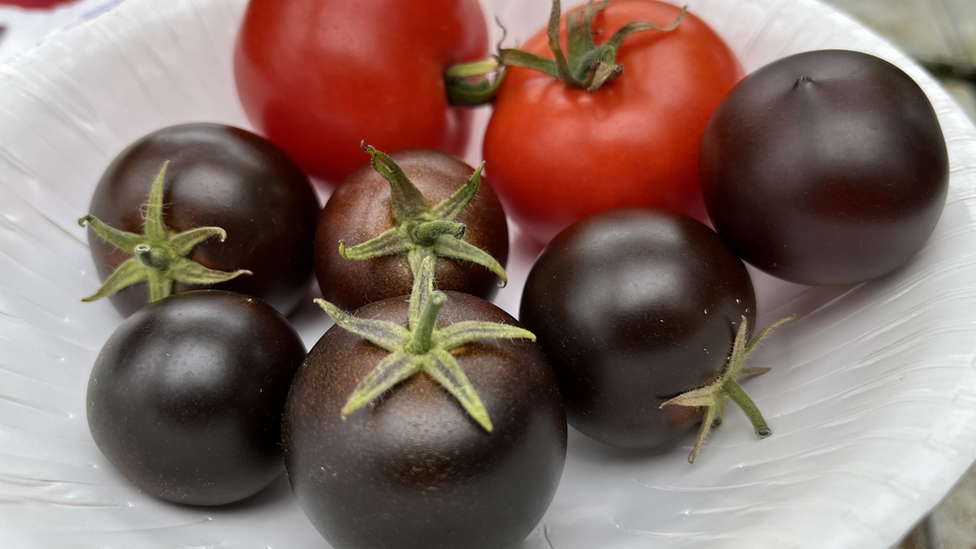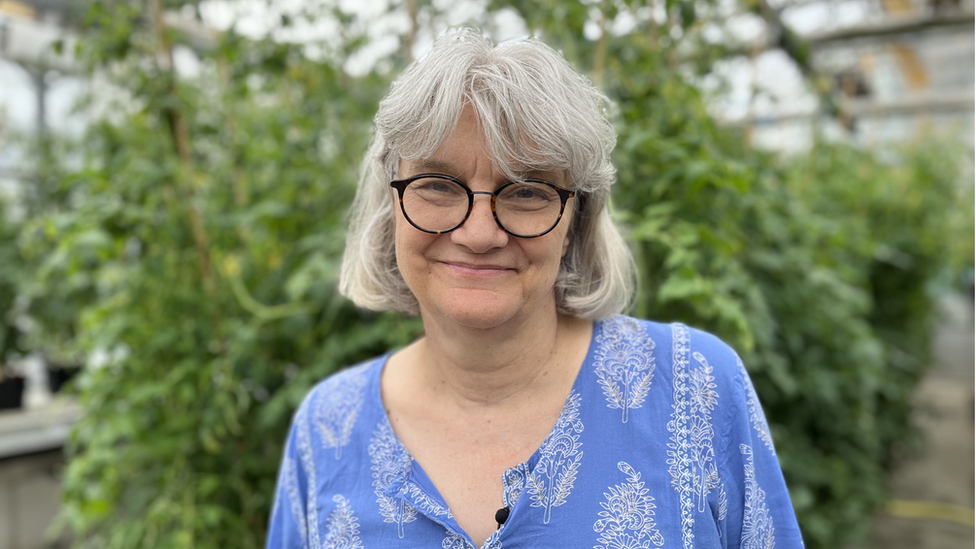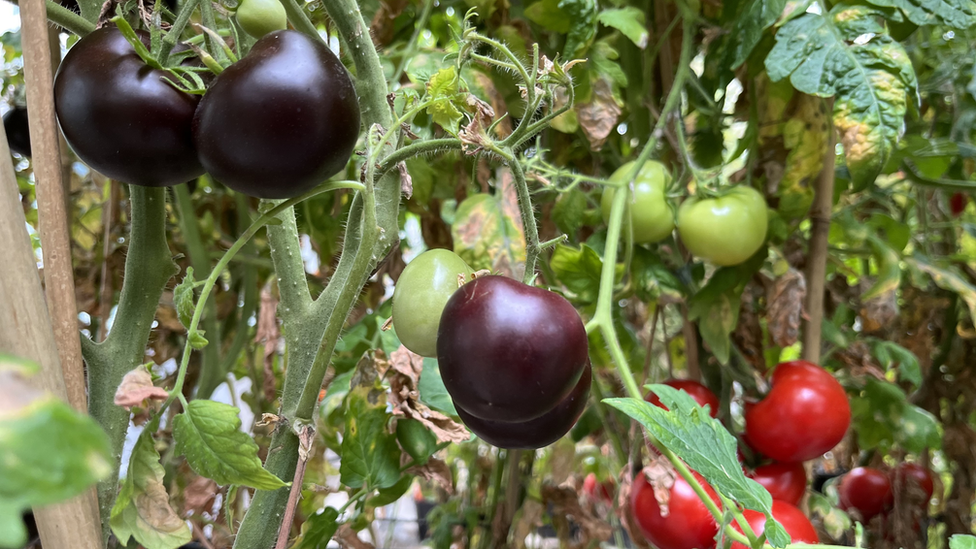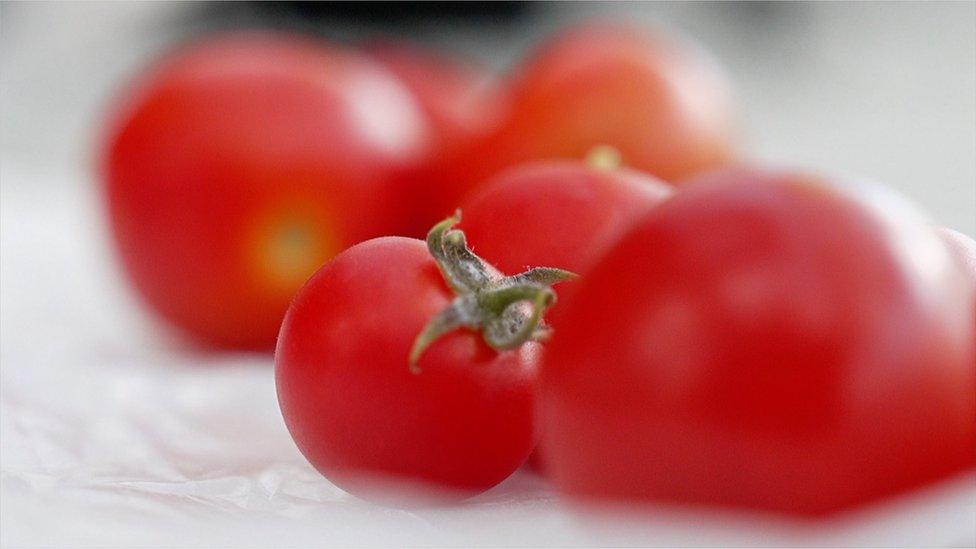Norwich scientists hope purple tomato will soon be sold in UK
- Published

The scientist that developed the purple tomato says it has exceptional antioxidant properties
A genetically modified purple tomato, developed by food scientists in Norwich, has been approved for sale in the US.
The country's Food and Drug Administration (FDA) has declared it is safe to eat.
Scientists that developed the product are now seeking permission to grow it commercially in the UK.
But campaigners against genetically modified (GM) foods have described the creation as a "vanity project".
Genetic modification involves adding genes to a plant's DNA from a different species of plant - or even an animal. It creates new varieties which could not have been produced through cross-breeding.

Prof Cathie Martin developed the purple tomato at the John Innes Centre in Norwich
Prof Cathie Martin who developed the purple tomato at the John Innes Centre in Norwich said the product had "exceptional antioxidant properties", having crossed the genes with a snapdragon flower.
"The greater good would be if people in the UK in particular, but world over if possible, could have more nutritious food to eat", she said.
The purple tomato is said to be rich is anthocyanins, external, which have been linked to a wide variety of health benefits, including increased cardiovascular health and the prevention of both cancer and dementia.
But many campaigners who are opposed to gene-edited foods are worried that GM crops will not require additional testing, and fear the creation of new allergens or toxins.

Liz O'Neill who campaigns against the production of GM foods says people should eat a wider variety of foods instead
Liz O'Neill from the campaign group GM Freeze said tomatoes are red for a reason.
"We've got naturally purple foods, lots of them, that have their own natural range of micro nutrients," said Ms O'Neill.
"And what people need to do is eat a much wider variety of foods, rather than looking for novelty tomato products."
The scientists in Norwich that developed the purple tomato have now set up a company in California called Norfolk Healthy Produce. They hope to sell its concept.

Purple tomatoes are already being sold in the US
Earlier this year, the UK government changed the law to enable gene-edited food to be developed and sold in England, external.
Genetically modified techniques have been common in most parts of the world for more than 20 years, though not in the European Union (EU).
Scientists argue that GM crops have been consumed by billions of consumers in North and South America and Asia for more than 25 years with no ill-effects.

Follow East of England news on Facebook, external, Instagram, external and Twitter, external. Got a story? Email eastofenglandnews@bbc.co.uk, external or WhatsApp us on 0800 169 1830
- Published27 March 2023

- Published26 May 2023
